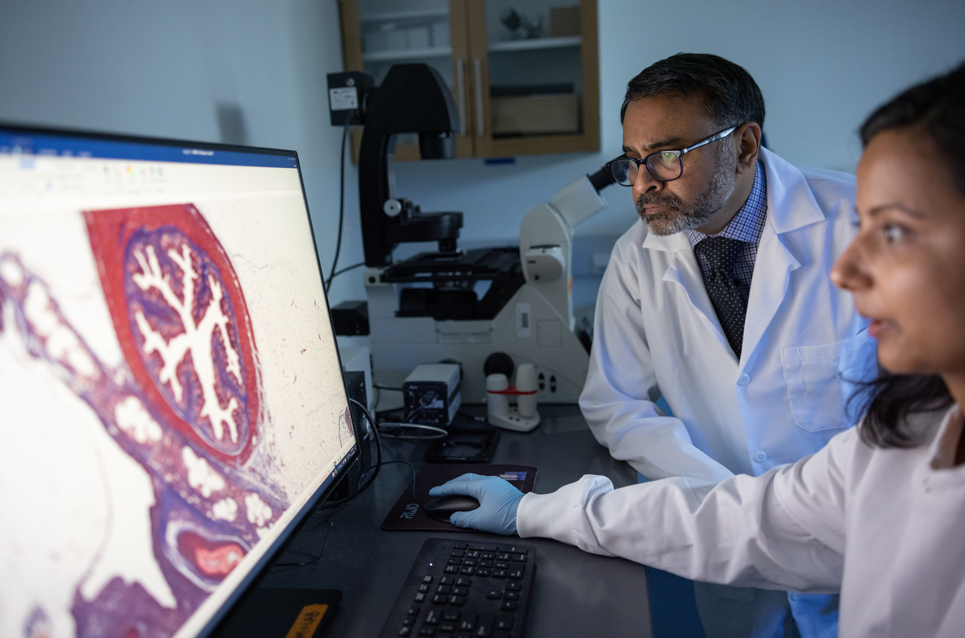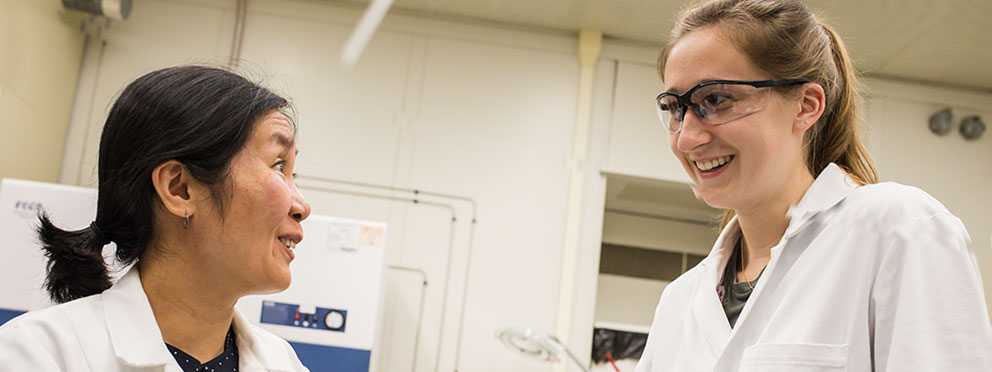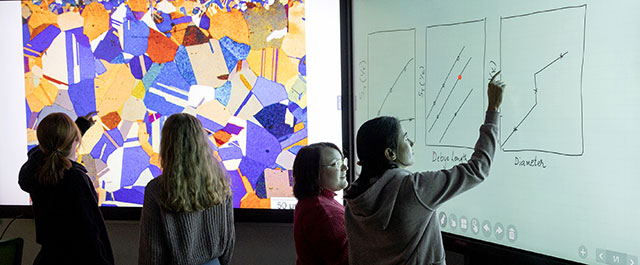
Doctoral students in bioengineering come from a variety of backgrounds, including biomedical engineering, chemical engineering, electrical engineering, physics, mechanical engineering, materials science, biochemistry, and biology.
Students work alongside internationally recognized experts and enjoy a 3-to-1 student-to-faculty ratio that ensures personalized mentoring and close collaboration while emphasizing academic rigor and quantitative problem-solving for biomedical applications.
Working across disciplinary boundaries, you will find yourself immersed in educational and research training experiences that integrate the life - and physical sciences and engineering as you establish dynamic partnerships with academic, industry, and clinical collaborators, and advance knowledge in the biomedical arena while preparing for careers in industry and academia that will impact human health.
PhD Program Sample Timeline
| Year | Description |
|---|---|
| 1 | You will engage in core courses to build your foundation, identify and join a research group, partner with your advisor to tailor your academic program to meet your goals, and build technical skills critical to your career success. |
| 2 | You will balance coursework and research and achieve your first programmatic milestone: the PhD qualifying exam. In the summer, you will fully engage in research and establish your doctoral committee. |
| 3 | You will dive into dissertation development, prepare scientific publications and conference presentations, and achieve your second programmatic milestone with a formal presentation to your doctoral committee. Your summer may include an internship to expand career preparedness. |
| 4 | As your momentum builds, you will continue to pursue research, scientific publication, and conference presentation goals. Achieve your third programmatic milestone: presenting your dissertation proposal to your doctoral committee. Summer may include an internship or exploration of career options. |
| 5 | As you explore future postdoctoral opportunities, you will achieve your final programmatic research milestone: your formal dissertation defense. |
 “When cancer is diagnosed early, there are more treatment options, and families can make better decisions. We’re using a “lab on a chip” platform and incorporating machine learning to look deeper into cells, improve the odds of detecting disease, and shorten the timeline to diagnosis. Lehigh’s Bioengineering department is just the right size, and the environment has been very supportive in helping me achieve my goals.”
“When cancer is diagnosed early, there are more treatment options, and families can make better decisions. We’re using a “lab on a chip” platform and incorporating machine learning to look deeper into cells, improve the odds of detecting disease, and shorten the timeline to diagnosis. Lehigh’s Bioengineering department is just the right size, and the environment has been very supportive in helping me achieve my goals.”
-Caroline Ferguson, Bioengineering Ph.D. student
The department's research is divided into 3 principal Research Thrusts:
Biocomputations and Modeling - From molecular modeling and bioinformatics at the biomolecular scale, through modeling of cells, tissues, and biofluids, to machine learning for personalized therapeutics and health informatics, computational and data sciences are revolutionizing bioengineering.
- Areas of research include: Biomolecular Modeling, Bioinformatics, Bioengineering Systems & Controls, Biophysics, Modeling of Biological Systems, Computational Bioengineering, Machine Learning and Artificial Intelligence, Data Analytics, and Biomedical Image Analysis
Diagnostics, Sensors and Devices - The development of diagnostic and sensing devices that help to identify, treat, and prevent disease are enabling advancement in biotechnology and reshaping the delivery of medical care.
- Areas of research include: Biomedical Imaging, Biophotonics, BioMEMS, Biosensors, Microfluidics, Bioelectronics, Medical Devices
Materials and Therapies - Many novel therapies are enabled by biomaterials innovation at the nano-, molecular- and micro-scales. Students work at the intersection of disciplines where Lehigh enjoys significant, demonstrable strength.
- Areas of research include: Biomaterials, Nanomaterials, Tissue Engineering & Regenerative Medicine, Neuroengineering, Biofluid & Solid Mechanics, Biomolecular & Cellular Mechanics, Environmental Bioengineering



